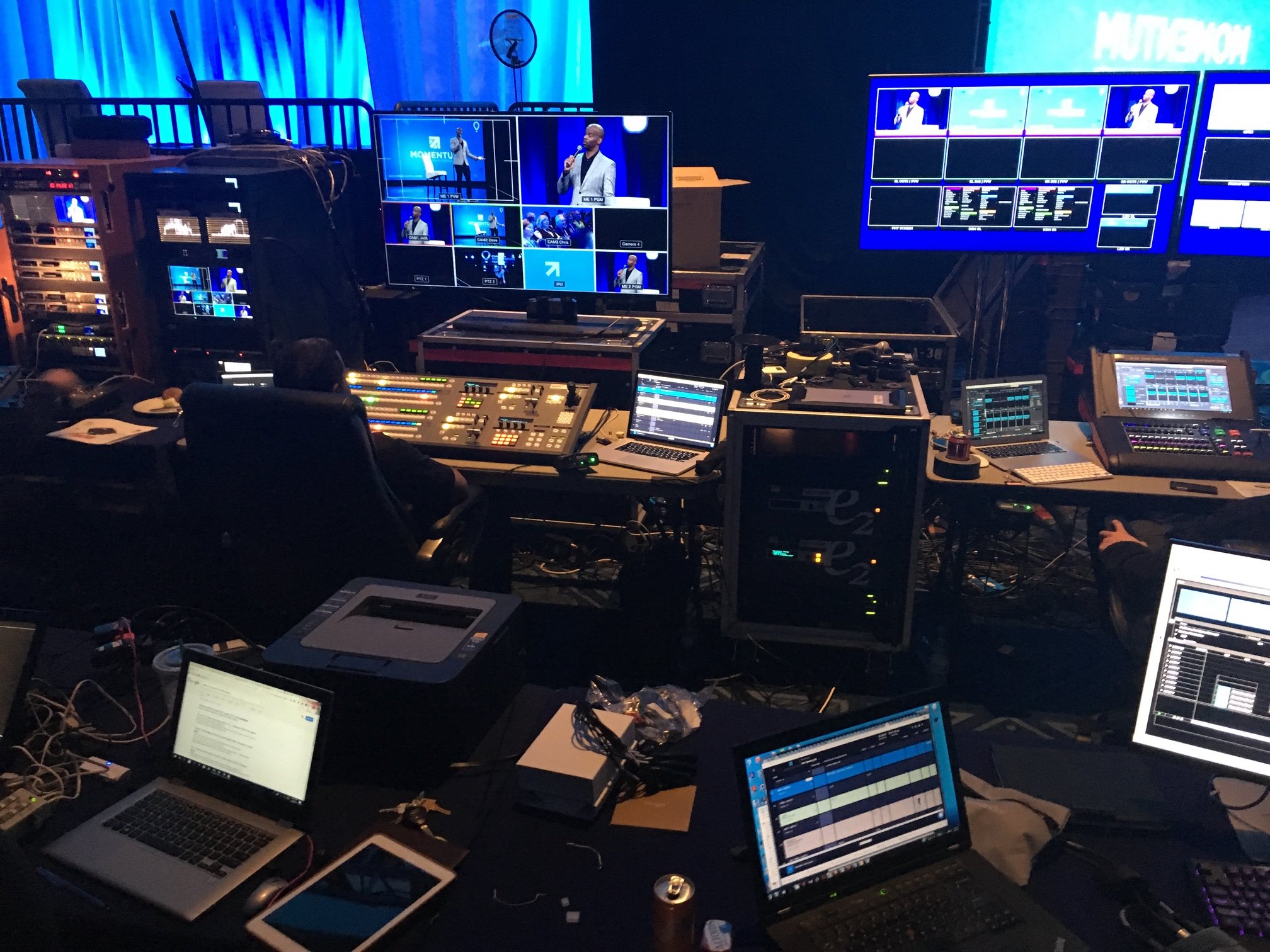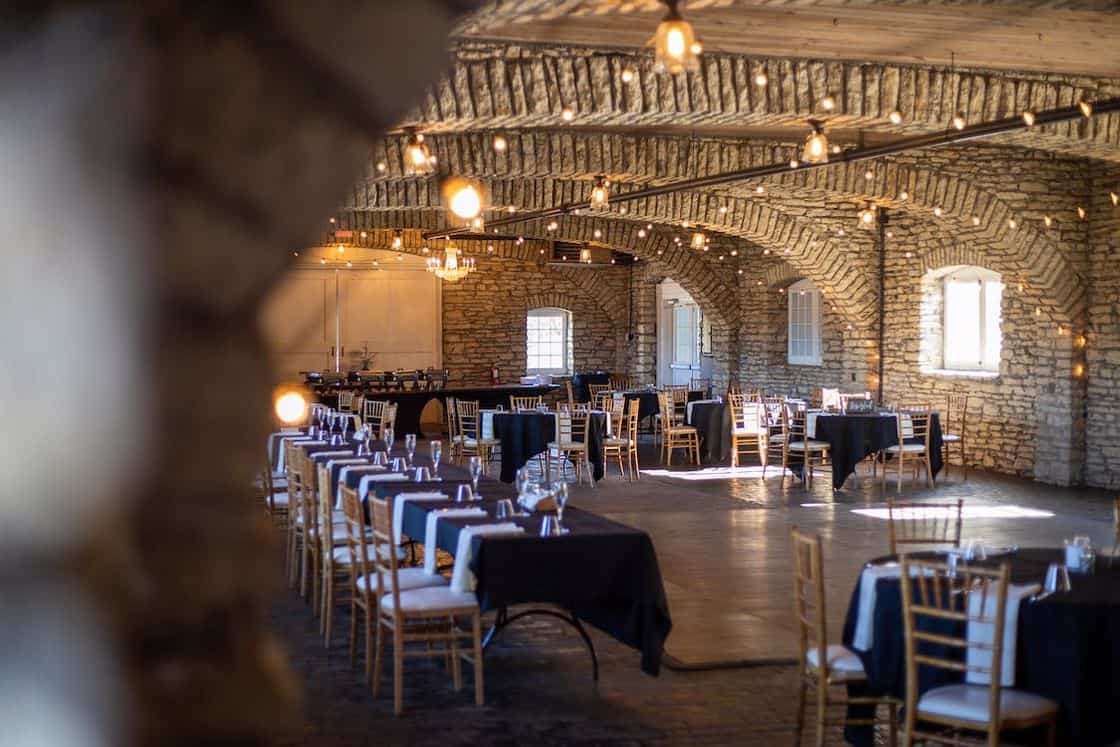Recognizing Event Production: Why It Is Important for Successful Celebrations
Event production plays an important function in shaping effective gatherings. It involves mindful planning, sychronisation, and implementation to guarantee every detail aligns with the event's vision. This procedure not just boosts guest experiences but likewise assists in meaningful connections amongst participants. Recognizing the complexities of event production can substantially impact the general result. What are the crucial elements that add to a successful event, and how can they be successfully handled?
The Role of Event Production in Producing Unforgettable Experiences
Although several factors contribute to the success of an event, event production plays a crucial duty in crafting remarkable experiences. This diverse procedure includes various components, including planning, logistics, and implementation. Efficient event production assurances that every information aligns with the total vision, producing a seamless circulation that astounds attendees. By collaborating timelines, handling resources, and overseeing technical facets, event manufacturers develop a structure for impactful experiences.Moreover, they curate settings that reverberate with the target market, boosting engagement and emotional link. From picking ideal locations to integrating innovative technology, the selections made throughout production substantially affect exactly how attendees regard and bear in mind the event. By focusing on high quality and focus to information, event production changes regular gatherings into remarkable moments, leaving lasting impacts. Eventually, the experienced orchestration of these parts specifies the significance of an event, showcasing the importance of professional event production in attaining phenomenal end results.
Trick Parts of Successful Event Production
Reliable event production depends upon several vital elements that assure success. Planning and control establish a strong foundation, while technical setup needs deal with logistical demands. Furthermore, applying audience involvement strategies boosts the general experience, making the event remarkable.
Planning and Sychronisation
Preparation and coordination work as the foundation of successful event production, making sure that every information aligns effortlessly to create an unforgettable experience. Reliable planning involves developing a clear vision and purposes, while control involves the careful company of logistics, schedules, and resources. A well-defined timeline is crucial, directing all stakeholders via critical turning points and tasks. Interaction plays a crucial role, promoting partnership amongst employee, suppliers, and venue personnel. Normal conferences and updates aid to resolve challenges without delay, guaranteeing that everybody stays lined up with the event goals. Eventually, a structured method to planning and sychronisation not just improves effectiveness however additionally considerably adds to the overall success and pleasure of the event for attendees and coordinators alike.
Technical Arrangement Needs
A successful event counts greatly on its technical configuration demands, which encompass vital parts such as audio-visual tools, lights, hosting, and connectivity. Audio-visual equipment consists of microphones, speakers, and projectors, guaranteeing that discussions and performances are delivered plainly. Correct lighting boosts the ambiance and highlights essential locations, while presenting offers the essential platform for audio speakers and entertainers. Connection, including Wi-Fi and electric accessibility, is essential for seamless communication and modern technology combination. Each component must be meticulously intended and carried out, tailored to the event's details requirements. Inadequate technological configurations can lead to disturbances, negatively influencing the general experience for attendees, emphasizing the value of extensive preparation and interest to detail in event production.
Target Market Engagement Methods

The Relevance of Preparation and Coordination
Planning and sychronisation are crucial to the success of any event production. Efficient timeline management, resource allocation methods, and group communication characteristics play crucial roles in making sure that all elements integrated seamlessly. Without a structured strategy to these facets, events risk encountering delays, budget plan overruns, and miscommunication amongst team members.
Reliable Timeline Monitoring


While effective event production commonly pivots on creativity and implementation, reliable timeline monitoring continues to be a necessary component that can not be ignored. A well-structured timeline serves as the foundation of any type of event, making sure that each stage is carried out in a prompt manner. It permits the control of different tasks, from location configuration to visitor arrivals, while protecting against possible traffic jams. By plainly laying out target dates and obligations, event coordinators can preserve focus and adjust to unanticipated obstacles. In addition, a diligently crafted timeline cultivates interaction among staff member, advertising accountability and cooperation. Ultimately, reliable timeline management not just boosts operational effectiveness yet also contributes substantially to the overall success and smooth implementation of the event, leaving attendees with an unforgettable experience.
Source Appropriation Approaches
Effective resource allotment techniques are critical for the successful execution of any type of event. Correct preparation enables event coordinators to recognize and distribute resources, such as finances, workers, and materials, in a way that optimizes performance. By evaluating the particular needs of each aspect of the event, organizers can prioritize tasks and assign resources appropriately. Sychronisation among different departments guarantees that all aspects, from dealing with audiovisual requirements, are effectively sustained. This tactical strategy not just decreases waste yet additionally boosts the overall experience for guests. In addition, preparing for potential obstacles Extra resources and having backup plans in location permits smoother procedures. Inevitably, efficient resource appropriation adds substantially to accomplishing event goals and guaranteeing a remarkable event.
Group Interaction Dynamics
Just how can smooth communication amongst group members transform the event production procedure? Reliable communication is important for coordinating tasks, sharing updates, and dealing with challenges in real-time. When employee participate in open discussion, they can quickly determine potential concerns and establish solutions collaboratively, decreasing delays and misconceptions. This dynamic fosters a cohesive setting where everybody understands their functions and responsibilities, leading to an extra synchronized initiative. Additionally, normal check-ins and comments loopholes boost accountability and warranty alignment with the event's purposes. By prioritizing communication strategies, groups can simplify workflows, reinforce spirits, and ultimately boost the total top quality of the event. Successful gatherings hinge on the capability to interact properly, making it a crucial component of event production.
Enhancing Participant Involvement Through Imaginative Layout
Creative layout plays a crucial function in enhancing participant interaction at events, as it promotes an immersive setting that captivates participants' interest. By incorporating ingenious visuals, interactive components, and thematic design, event visit site coordinators can develop memorable experiences that reverberate with participants. Thoughtful format styles promote movement and exploration, encouraging guests to engage with screens and each other.Incorporating modern technology, such as increased reality or live polling, further enriches the experience, permitting real-time comments and communication. In addition, sensory components like lights, audio, and aroma can evoke feelings and create a more engaging atmosphere.The use of narration via style aids share the event's objective and message, making it a lot more relatable for guests. Eventually, innovative design not only enhances interaction yet additionally grows connections amongst individuals, leaving a long lasting impression that extends beyond the event itself. This critical approach to design is essential for effective celebrations.
Taking care of Logistics for a Smooth Execution
While the excitement of an event can attract guests in, managing logistics is vital to safeguard a smooth execution. This entails diligently collaborating different elements, from place choice and layout to event catering and transportation. Effective logistics monitoring ensures that all components straighten, enabling a smooth flow from enrollment to the verdict of the event.Additionally, a clear interaction plan amongst all stakeholders is necessary. This includes team, suppliers, and volunteers, who must be notified of their roles and duties. Expecting potential challenges, such as tools failure or unanticipated weather condition problems, can additionally enhance the event's success.Creating a comprehensive timeline aids keep the group on track and enables timely modifications. Ultimately, well-managed logistics not just assist in an enjoyable experience for guests yet also show the professionalism and reliability and reliability of the coordinators, adding to the overall success of the event.

The Influence of Modern Technology on Event Production
What duty does innovation play in shaping modern event production? Modern technology has become a foundation of efficient event production, enhancing both intending and execution processes. From sophisticated registration systems to interactive apps, modern technology enhances attendee monitoring and enhances engagement. Digital event systems enable organizers to get to larger target markets, breaking geographical obstacles and helping with hybrid events that incorporate in-person and on the internet experiences.Additionally, audiovisual technologies, such as high-definition screens and sound systems, raise the quality of presentations and performances, ensuring a remarkable experience for participants - event production charlotte. Social media integration allows real-time responses and interaction, fostering area engagement before, throughout, and after the event. Moreover, data analytics tools assist organizers in keeping track of individual behavior and choices, enabling customized experiences that reverberate with diverse audiences. Overall, the assimilation of technology in event production not just boosts operational performance however additionally look at this web-site improves guest experiences, eventually adding to the success of the event
Reviewing Success: Gauging the End Results of Your Event
Success in event production depends upon effective examination, which involves gauging a range of end results to analyze the total impact of an event. To attain this, coordinators can use both qualitative and measurable metrics. Measurable procedures might consist of participation figures, ticket sales, and revenue generated, while qualitative analyses could include guest fulfillment surveys and comments forms.Additionally, examining social media sites interaction and media coverage can supply insights into the event's reach and brand impact. Contrasting these metrics versus predefined objectives aids identify if the purposes were met.Furthermore, post-event debriefs with the planning team can reveal lessons learned and areas for improvement. By methodically assessing these results, event manufacturers can improve future gatherings, guaranteeing continual development and success. Ultimately, a complete examination not only highlights accomplishments but likewise notifies critical decisions for subsequent events, cultivating a society of excellence in event production.
Often Asked Concerns
What Certifications Should an Occasion Producer Have?
Event manufacturers need to have strong business skills, imagination, and effective communication capabilities. A background in job administration, budgeting, and negotiation is essential. Relevant accreditations and experience in diverse event types further enhance their certifications.
Just How Can I Decrease Event Production Expenses Properly?
To properly lower event production expenses, one can streamline supplier selection, bargain agreements, utilize in-house resources, prioritize vital elements, execute modern technology for performance, and discover sponsorship possibilities to balance out expenses without compromising top quality.
What Are the Typical Obstacles in Event Production?
Usual challenges in event production consist of spending plan restrictions, logistical coordination, vendor management, time restrictions, attendee engagement, technological difficulties, and unanticipated scenarios - event production charlotte. Each element can greatly affect the general success and smooth implementation of the event
Exactly how Do I Select the Right Venue for My Event?
Selecting the appropriate venue involves thinking about variables such as area, capacity, facilities, and budget plan. Furthermore, examining access and setting ensures the picked room straightens with the event's objectives and boosts the total participant experience.
What Is the Common Timeline for Planning an Event?
The common timeline for preparing an event varies, but generally consists of phases such as idea advancement, location option, supplier coordination, promo, and last preparations, usually spanning a number of months to ensure an effective implementation.